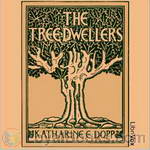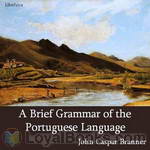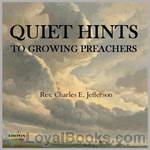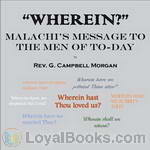|
Books Should Be Free Loyal Books Free Public Domain Audiobooks & eBook Downloads |
|
|
Books Should Be Free Loyal Books Free Public Domain Audiobooks & eBook Downloads |
|
Instructional Books |
|---|
|
Book type:
Sort by:
View by:
|
By: Katharine Elizabeth Dopp (1863-1944) | |
|---|---|
 The Tree-Dwellers
The Tree-Dwellers
Katharine E. Dopp was well-known as a teacher and writer of children’s textbooks at the turn of the 20th Century. She was among the first educators to encourage the incorporation of physical and practical activity into the elementary school curriculum at a time when such activities were becoming less commonplace in a child’s home environment. The Tree-Dwellers – The Age of Fear is the first in a series of elementary school texts written by Ms. Dopp that focus on the anthropological development of early human groups... | |
By: Maria Gentile | |
|---|---|
 The Italian Cook Book
The Italian Cook Book
One of the beneficial results of the Great War has been the teaching of thrift to the American housewife. For patriotic reasons and for reasons of economy, more attention has been bestowed upon the preparing and cooking of food that is to be at once palatable, nourishing and economical.In the Italian cuisine we find in the highest degree these three qualities. That it is palatable, all those who have partaken of food in an Italian trattoria or at the home of an Italian family can testify, that it is healthy the splendid manhood and womanhood of Italy is a proof more than sufficient... | |
By: Pliny the Elder | |
|---|---|
 The Natural History
The Natural History
"Naturalis Historia" (Latin for "Natural History") is an encyclopedia published circa AD 77-79 by Pliny the Elder. It is one of the largest single works to have survived from the Roman empire to the modern day and purports to cover the entire field of ancient knowledge, based on the best authorities available to Pliny. The work became a model for all later encyclopedias in terms of the breadth of subject matter examined, the need to reference original authors, and a comprehensive index list of the contents... | |
By: Estelle M. Hurll (1863-1924) | |
|---|---|
 Child-life in Art
Child-life in Art
The poetry of childhood is full of attractiveness to the artist, and many and varied are the forms in which he interprets it. The Christ-child has been his highest ideal. All that human imagination could conceive of innocence and purity and divine loveliness has been shown forth in the delineation of the Babe of Bethlehem. The influence of such art has made itself felt upon all child pictures. It matters not whether the subject be a prince or a street-waif; the true artist sees in him something which is lovable and winning, and transfers it to his canvas for our lasting pleasure. | |
By: George Lovell Cary | |
|---|---|
 An Introduction to the Greek of the New Testament
An Introduction to the Greek of the New Testament
A collection of lessons (primarily in grammar) for New Testament Greek (also known as Koine) collected by a professor at Meadville Theological School of Pennsylvania. There are over 80 short lessons, each covering an aspect of verbs, nouns, etc. | |
By: John Casper Branner | |
|---|---|
 A Brief Grammar of the Portuguese Language
A Brief Grammar of the Portuguese Language
Dr. Branner was a recognized authority on the geology of South American republics, especially Brazil, having organized and headed the Stanford Expedition to Brazil in 1911, among others. In 1910 he published this "little book", as the author himself calls it, for the use of English-speaking students who needed a fast and practical way of learning Portuguese. Contrary to the belief of many back then, John C. Branner claims that Brazilian Portuguese isn't "badly spoken Portuguese", and, even though using examples from both Portuguese and Brazilian writers, seems to give more proeminence to Brazilian Portuguese. | |
By: Charles E. Jefferson (1860-1937) | |
|---|---|
 Quiet Hints to Growing Preachers
Quiet Hints to Growing Preachers
Charles Edward Jefferson was pastor of the Broadway Tabernacle in Brooklyn, New York for 33 years. In Quiet Hints, published in 1901, he provided guidance to young preachers on what we would today call ministerial deportment, an old-fashioned word that refers to how a man carries himself, how he presents himself, his manners, his bearing, his habits, and his whole approach to life. Jefferson wrote in short, pithy statements that encapsulate practical truth in just a few words. | |
By: William Cobbett (1763-1835) | |
|---|---|
 Cottage Economy
Cottage Economy
How can you tell when your pig is fat enough? Why should you never buy mustard? What's wrong with eating potatoes? Which is better, beer or tea? And what type of straw makes the best bonnets? William Cobbett is the man to ask. Here is his book of practical advice to the rural labouring 'cottager' (first published as a part-work in 1821-22), the precursor in many ways to the handbooks on self-sufficiency that today entice so many city-dwellers. A champion of the rural working class at a time of huge... | |
By: H. S. Adams (1864-?) | |
|---|---|
 Making a Rock Garden
Making a Rock Garden
A short look at building a rock garden, right from the rocks themselves and how to arrange them, to choosing and placing the plants, touching wall and bog gardens, too. In this little monograph, the author is trying to draw the eyes of U.S. gardeners in to the intimate beauty of this neglected hobby.The original work has a number of attractive and useful photographs and drawings. | |
By: Annie F. Johnston (1863-1931) | |
|---|---|
 Little Colonel's Christmas Vacation
Little Colonel's Christmas Vacation
In this delightful story ”The Little Colonel's Christmas Vacation” by Annie Fellows Johnston the Little Colonel, Lloyd Sherman. together with her friends Betty, Kitty and Allison are starting the schoolyear at a new school, Warwick Hall, a Boardingschool for girls in Washington. They find it a wonderful and stimulating place, make many new friends and have many experiences and also adventures there. But Lloyd comes down with high fever shortly before Christmas, and while home on Christmas Vacation she almost breaks down, and the doctor says she must not go back to school but stay at home to regain her health... | |
By: Alfred Ayres (1826-1902) | |
|---|---|
 The Verbalist
The Verbalist
Ayres arranges usage problems alphabetically and treats certain areas in greater detail as he sees fit. For example, his first entry is A-AN (articles). His second is ABILITY-CAPACITY, in which he distinguishes between the meanings. The alphabetical arrangement continues through to YOURS. (Introduction by Bill Boerst) | |
By: William C. Hunter | |
|---|---|
 Pep: Poise, Efficiency, Peace
Pep: Poise, Efficiency, Peace
Colonel William Crosbie Hunter was a businessman and self-help writer who was moderately popular in the early 20th century. His books set forth his personal philosophy on health, happiness, human relations, and success in the business world. Pep, billed as "A book of how's not why's for physical and mental efficiency," was published in 1914 and went through several editions. (Introduction by Pleonic) | |
By: Gustav Kobbé (1857-1918) | |
|---|---|
 How to Appreciate Music
How to Appreciate Music
Originally published in 1906, this book is essentially a how to guide on music appreciation. Includes sections on the pianoforte, orchestral, and vocal music. Good for anyone who wishes for a greater appreciation of the wonders of music. | |
 The Pianolist A Guide for Pianola Players
The Pianolist A Guide for Pianola Players
| |
By: Edith E. Wiggin | |
|---|---|
 Lessons on Manners for Home and School Use
Lessons on Manners for Home and School Use
It is true that good manners, like good morals, are best taught by the teacher's example. It is also true that definite lessons, in which the subject can be considered in its appropriate divisions, are of no little value if we would have our children attain to "that finest of the fine arts, a beautiful behavior." (From the author's Introduction) | |
By: Abdu’l-Bahá ‘Abbás (1844-1921) | |
|---|---|
 Talks by Abdul Baha Given in Paris
Talks by Abdul Baha Given in Paris
“Much has already been written of the visit of Abdul Baha, Abbas Effendi, to Europe,” writes Lady Blomfield in her Preface to Paris Talks, “During his stay at Paris at 4, Avenue de Comoens, he gave short “Talks” each morning to those who crowded, eager to hear His Teaching. These listeners were of many Nationalities and types of thought, learned and unlearned, members of various religious sects, Theosophists and Agnostics, Materialists and Spiritualists, etc., etc. Abdul Baha spoke in Persian, which was translated into French... | |
By: John Charles Van Dyke | |
|---|---|
 A Text-Book of the History of Painting
A Text-Book of the History of Painting
A TEXT-BOOK OF THE HISTORY OF PAINTINGBY JOHN C. VAN DYKE, L.H.D.PREFACE.The object of this series of text-books is to provide concise teachable histories of art for class-room use in schools and colleges. The limited time given to the study of art in the average educational institution has not only dictated the condensed style of the volumes, but has limited their scope of matter to the general features of art history. Archaeological discussions on special subjects and aesthetic theories have been avoided... | |
By: Samuel D. Gordon (1859-1936) | |
|---|---|
 Quiet Talks on Prayer
Quiet Talks on Prayer
An open life, an open hand, open upward, is the pipe line of communication between the heart of God and this poor befooled old world. Our prayer is God’s opportunity to get into the world that would shut Him out. (From the first chapter) | |
By: Patanjali | |
|---|---|
 The Yoga Sutras of Patanjali
The Yoga Sutras of Patanjali
Yoga sutras by Patanjali is a seminal work in yoga, this book is more about control of mind and the true goal of yoga. The sutras are extremely brief, and the translation in neat English makes it very easy for people to understand the ancient Sanskrit text. It starts with the birth and growth of spiritual man through the control of mind. In all, this is a "all in one" book for yoga philosophy written by the master himself. | |
By: Alice B. Emerson | |
|---|---|
 Ruth Fielding at Briarwood Hall
Ruth Fielding at Briarwood Hall
In this, the second book of the Ruth Fielding series, Ruth goes to boarding school with her best friend Helen. When they get there, Ruth starts her own sorority called the SweetBriars for the new girls. Her sweet group of girls conflicts with the two other sororities the Upedes and the Fussy Curls. In the midst of settling in to the new place, there is a campus rumor about a legend of the marble harp playing ominously at night. But when the French teacher is in a fright, will Ruth be able to solve this mystery?The Ruth Fielding series has influenced several other major series that came later, including Nancy Drew, the Dana Girls, and Beverly Gray. | |
By: Henry Edward Krehbiel (1854-1923) | |
|---|---|
 How to Listen to Music
How to Listen to Music
This book is "not written for professional musicians, but for untaught lovers of the art". It gives broad instruction on composers, styles, instruments, venues - and when to believe the critics. | |
By: Philip Melanchthon (1597-1560) | |
|---|---|
 The Augsburg Confession
The Augsburg Confession
The Augsburg Confession is the first and most fundamental Confession of the Lutheran Church. It was composed for a public reading at the Diet of Augsburg on June 25, 1530. Although written by Melanchthon, it was presented as the official answer of the undersigned German princes to the summons of Emperor Charles V. Two copies were presented on the same day, one in German, the other in Latin. This work translates a conflation of the German and Latin texts and was prepared for the Concordia Triglotta of 1921. (Introduction by Jonathan Lange) | |
By: Amelia Simmons (c. 1700s-1800s) | |
|---|---|
 American Cookery
American Cookery
American Cookery, by Amelia Simmons, was the first known cookbook written by an American, published in 1796. Until this time, the cookbooks printed and used in what became the United States were British cookbooks, so the importance of this book is obvious to American culinary history, and more generally, to the history of America. The full title of this book was: American Cookery, or the art of dressing viands, fish, poultry, and vegetables, and the best modes of making pastes, puffs, pies, tarts, puddings, custards, and preserves, and all kinds of cakes, from the imperial plum to plain cake: Adapted to this country, and all grades of life. (Description from Wikipedia) | |
By: Friedrich Wieck (1785-1873) | |
|---|---|
 Piano and Song
Piano and Song
This book talks about teaching, learning and performing on the piano in a delightful style, alternating between conversation and instruction. As he was the father of Clara Schumann and Robert Schumann's teacher, need I say more? | |
By: Harrison Weir (1824-1906) | |
|---|---|
 Our Cats and All About Them
Our Cats and All About Them
The Englishman Harrison Weir organized the first cat show in England in 1871. In 1887 he founded the National Cat Club and was its first President and Show Manager until his resignation in 1890.Our Cats and all about them is concerned with cats and all about them. It describes numerous breeds of cats and what to look for in a cat show champion, and deals with the general management and common diseases of cats, as well as how to raise healthy kittens. But there is also a hodge podge of cat related stories, games, nursery rhymes, superstitions, as well as a list of cat lovers and a chapter of "The Cat in Shakespeare". | |
By: Mary Wood-Allen (1841-1908) | |
|---|---|
 Almost A Man
Almost A Man
| |
By: Henry M. Robert (1837-1923) | |
|---|---|
 Robert's Rules of Order
Robert's Rules of Order
Originally written in 1876 by Major Henry M. Robert of the US Army Corps of Engineers, Robert's Rules of Order is the most widely used authority in the United States today for "parliamentary law, based...upon the rules and practice of Congress" for "organizing and conducting the business of societies, conventions, and other deliberative assemblies." | |
By: US Office of Civil Defense | |
|---|---|
 In Time Of Emergency: A Citizen's Handbook On Nuclear Attack, Natural Disasters
In Time Of Emergency: A Citizen's Handbook On Nuclear Attack, Natural Disasters
A major emergency affecting a large number of people may occur anytime and anywhere. It may be a peacetime disaster such as a flood, tornado, fire, hurricane, blizzard or earthquake. It could be an enemy nuclear attack on the United States. In any type of general disaster, lives can be saved if people are prepared for the emergency, and know what actions to take when it occurs. This handbook, "In Time of Emergency" (1968), contains basic general information on both nuclear attack and major natural disasters... | |
By: Izaak Walton (1593-1683) | |
|---|---|
 The Compleat Angler
The Compleat Angler
The Compleat Angler is a celebration of the art and spirit of fishing in prose and verse. Walton did not profess to be an expert with the fly, but in the use of the live worm, the grasshopper and the frog "Piscator" could speak as a master. There were originally only two interlocutors in the opening scene, "Piscator" and "Viator"; but in the second edition, as if in answer to an objection that "Piscator" had it too much in his own way in praise of angling, he introduced the falconer, "Auceps," changed "Viator" into "Venator" and made the new companions each dilate on the joys of his favourite sport. | |
By: Sir Francis Galton (1822-1911) | |
|---|---|
 The Art of Travel
The Art of Travel
The Art of Travel is a handbook of practical advice for the adventure seeking Victorian. We hear how to organize all steps of a voyage, from the very beginnings (qualifications of a traveller, how to organize an expedition, the perfect outfit), to the actual trip (how to choose a bivouac, huts and tents, what game to shoot - and how, dealing with (hostile) savages), until the final, hopefully successful, return of the traveller (arranging memoranda). | |
By: James Francis Cooke (1875-1960) | |
|---|---|
 Great Pianists on Piano Playing Study Talks with Foremost Virtuosos
Great Pianists on Piano Playing Study Talks with Foremost Virtuosos
| |
By: G. Campbell Morgan (1863-1945) | |
|---|---|
 Wherein?
Wherein?
These studies in the book of Malachi were delivered as addresses to the students at Mr. Moody’s Bible School in Chicago, and then to my own congregation. They have also appeared in “The Record of Christian Work” in the United States, and in “Out and Out” in England. They are now sent out in a more permanent form, after careful revision, with the prayer that they may be used of God in calling His own children into the place of power without which form is nothing. (Introduction by G. Campbell Morgan) | |